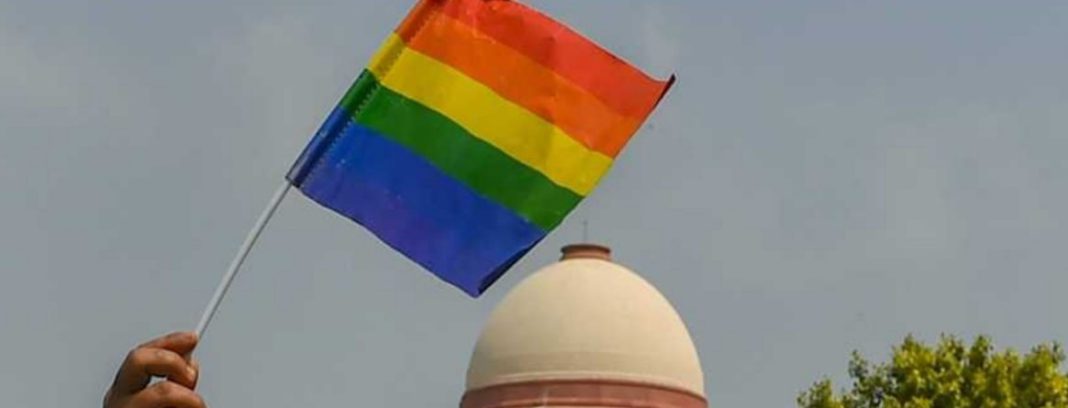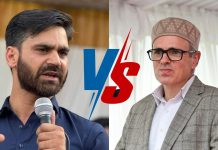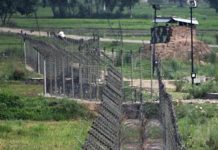Denied and Dishearten: But the Fight Will Continue
Jaspreet Singh
The Supreme Court’s five-judge bench on same sex or equal marriage, led by Chief Justice of India D.Y. Chandrachud and comprising Justices Sanjay Kishan Kaul, S Ravindra Bhat, Hima Kohli, and PS Narasimha, has given freedom to all Indians to engage in same sex relationships while also ensuring constitutional safeguards for all. At the same time, the court did not offer legal recognition for same-sex marriage.
The majority of court verdict (2:3) of the court decided against same-sex marriage. The court mentioned that we have no power to draft any law. Whereas, law should be drafted by Parliament only. In addition to marriage, the court declined to give unmarried and queer persons with adoption rights. But there is no bar on Trans-persons entering into heterosexual marriages as court announced that “If a transgender person wishes to marry a heterosexual person such marriage will be recognized as one would be a man and another would be a woman, transgender man has the right to marry a woman, transgender woman has the right to marry a man and transgender woman and transgender man can also marry and if not allowed it will violate the transgender act”.
Also Read: Jammu youth shot dead in abroad, family demands justice
There was many arguments about queerness, being an urban or western phenomenon or urban elitist view, to clarify this CJI mentioned: Queerness is not urban or elite. People may be queer regardless of whether they come from small towns, villages, semi urban or urban areas. They come from all castes, and economic backgrounds. It is also a mistake to conflate the urban with the elite. He also added that it’s incorrect to call marriage a “static and unchanging institution”. And further mentioned that legal recognition of non-heterosexual unions is a step towards marriage equality” even though “marriage is not the static or end”.
Where as Justice Kaul described heterosexual and non-heterosexual marriages as “two sides of the same coin”. To oppose this Justice Ravindra Bhat mentioned that “ Thus there cannot be an unqualified right to marry which is to be treated as a fundamental right.”
The court also gave directions, CJI Chandrachud said the central, state and UT governments must ensure the queer community is not discriminated against, ensure no discrimination in access to goods and services, sensitise the public, establish hotline numbers, set up safe houses for the community, and ensure intersex children are not forced to undergo operations. Court also added that he CJI also directed police officials not to harass queer couples, and force them to return to their parents. “Before lodging an FIR against a queer couple in connection to their relationship, there must be a preliminary inquiry.”
The Supreme Court also recorded the Centre’s proposal to form a committee to look into the issues faced by same-sex couples.
I am a nonbinary homosexual PhD student at Central University of Jammu. From this Supreme Court Five- Judge Bench, I was full of optimism, wanting to be married and started a family one day. My parents are getting old and wanted me to be settled. However, this verdict dashed all of my dreams in one fell swoop and rendered this a distant dream.
This verdict can be a life changing or life time opportunity for LGBTQI+ , who desired to love freely. But this ruling crushed the hope of millions of the people from alternative sexuality by providing the legal recognition to same sex marriage as it has emotional, psychological, social, legal, and economic impact. This denial promotes prejudice, exacerbates mental health issues, and produces legal and financial difficulties.
It also affects children from LGBT homes, leading to feelings of rejection and loneliness. Recognizing and granting marriage rights to LGBT individuals is not only a matter of legal equality but also a step towards fostering a more inclusive and accepting society. The significance of same-sex marriage rights stems from the values of equality, legal protection, and societal acceptance.
Allowing same-sex couples to marry not only assures that they have the same legal rights and protections as heterosexual couples, but it also conveys a strong message of inclusion and acceptance. It promotes family rights, builds communities, and has a good impact on the mental and emotional well-being of LGBTQ+ people. Finally, the campaign for same-sex marriage rights is a critical component of the larger struggle for equal rights and social justice for all people, regardless of sexual orientation. To achieve full equality, including marriage equality, there is still a long way to go.
Perhaps we exist. As an equal citizen of this country, our rights matter and we will have them. Yes, maybe not today, but one day we will be able to exercise all of our rights and live our lives with full honour, respect, and dignity. This is the beginning of new battle, with this hope we will continue our fight!
The author is a research scholar namely Jaspreet Singh from Jammu , who identifies as (He/Him/They) pursuing PHD from Department of Social Work in Central University of Jammu.




